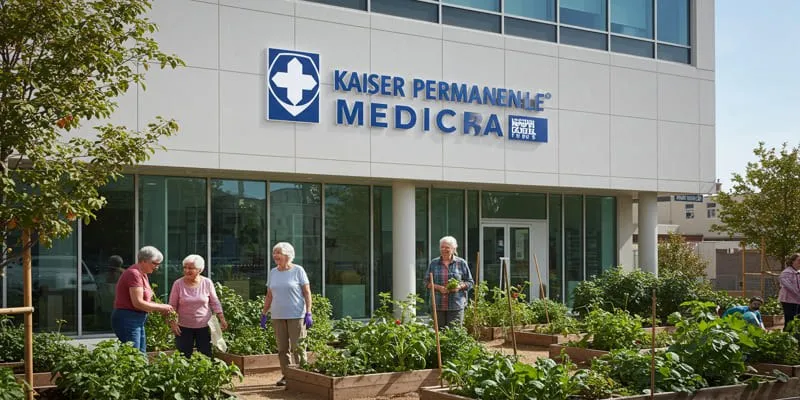Does Medicare Cover Colonoscopy? Find Out What’s Included in Your Plan
A colonoscopy is a crucial screening test used to detect signs of colon cancer, polyps, and other gastrointestinal issues. It’s recommended for adults over the age of 45 or sooner if you have a family history of colon cancer. Understanding the costs and coverage of a colonoscopy under Medicare can be confusing for many.

Does Medicare cover it fully? If not, what portion do you have to pay? These are important questions for seniors who need this potentially life-saving test. In this article, we’ll break down how Medicare handles colonoscopy coverage, what you can expect in terms of costs, and what to do if Medicare doesn’t fully cover the procedure.
Understanding Colonoscopy and Its Importance
A colonoscopy is a medical procedure where a doctor examines the inside of your colon using a long, flexible tube with a camera. It’s one of the most effective methods for identifying early signs of colon cancer, especially in those without symptoms. Colon cancer is among the most preventable cancers; however, early detection is crucial to reducing mortality rates.
Typically conducted in adults aged 50 and above, patients with a family history of colon cancer might be encouraged to take an earlier test. It’s also used for determining the cause of gastrointestinal disorders or checking existing cases of IBD. Seniors relying on Medicare for health coverage need to know if this important procedure is covered and how much they will need to pay out-of-pocket.
Medicare and Its Coverage for Colonoscopy
Medicare, the federal health insurance program for individuals 65 and older, provides coverage for colonoscopies. However, the extent of coverage depends on the reason for the colonoscopy and which part of Medicare you have.
Medicare Part B (Medical Insurance)

For preventive services, such as a colonoscopy done as a screening for colon cancer, Medicare Part B covers 100% of the costs. If you are at average risk for colon cancer and over 45, you qualify for this preventive coverage once every 10 years. No deductible or co-payment is required for the screening procedure itself.
Medicare Part B for Diagnostic Colonoscopies
If you need a colonoscopy for diagnostic reasons—such as experiencing symptoms or having a family history of colon cancer—Medicare Part B will still cover the procedure. However, you may have to pay a portion of the costs. Part B typically covers 80% of the procedure cost after you meet your deductible. You would be responsible for the remaining 20%, which can vary depending on where the procedure is performed.
Medicare Advantage Plans
If you are enrolled in a Medicare Advantage plan (Part C), coverage for a colonoscopy will depend on the specifics of your plan. Most Medicare Advantage plans cover colonoscopies, and some may offer additional benefits, such as reduced out-of-pocket costs for the procedure. However, as with other services, you may need to check your specific plan details to understand your coverage and cost-sharing responsibilities.
Costs and Out-of-Pocket Expenses for Colonoscopy Under Medicare
While Medicare provides significant coverage for colonoscopies, there are potential costs that could leave you with out-of-pocket expenses. Here’s what to keep in mind:
Medicare Part B Deductible: If your colonoscopy is considered diagnostic, you will need to meet the Medicare Part B annual deductible before Medicare starts covering the costs. In 2024, the Part B deductible is $240. After that, Medicare pays 80% of the cost, leaving you responsible for the remaining 20%.
Facility Fees and Anesthesia Costs: Depending on where the colonoscopy is performed, you might also have to pay for facility fees. If the procedure is done at a hospital outpatient department or an ambulatory surgical center, there could be additional charges. Anesthesia is another common extra cost that Medicare may cover, but again, this depends on your specific plan and circumstances.
Additional Costs for Biopsy or Polyp Removal: If polyps are found during the colonoscopy and need to be removed, or if a biopsy is performed, these procedures can increase the cost. Medicare covers these additional procedures, but again, you may be responsible for 20% of the charges after your deductible is met.
Alternatives and What to Do If Medicare Does Not Fully Cover a Colonoscopy
Medicare Savings Programs: For individuals with limited income, Medicare Savings Programs can help pay for some of their out-of-pocket costs, including deductibles and co-pays. These programs are available in every state, and eligibility is based on income and other factors. It’s worth exploring these programs if you’re worried about the cost of a colonoscopy.

State and Local Health Programs: Some states and local health organizations offer free or low-cost colonoscopy screenings for low-income individuals or those without insurance. Check with your local health department or community health programs to see if these options are available in your area.
Financial Assistance from Hospitals: Many hospitals provide financial aid or sliding scale payment plans for those unable to cover the full cost of a colonoscopy. If you’re facing a financial burden, it’s worth reaching out to the hospital where you’re having the procedure to inquire about payment plans or discounts.
Other Screening Methods: If a colonoscopy is not fully covered or deemed unnecessary, there are alternative screening tests available, such as stool- based tests (e.g., FIT, Cologuard) that can detect signs of colon cancer. These tests may be covered by Medicare under certain circumstances, but you will need to check with your healthcare provider and insurance to confirm coverage.
Conclusion
A colonoscopy is an important part of maintaining gastrointestinal health and preventing colon cancer, especially for seniors. Medicare provides significant coverage for the procedure, particularly for routine screenings, but there are costs involved when a colonoscopy is performed for diagnostic purposes. Understanding the different parts of Medicare, including Part B and Medicare Advantage plans, can help you navigate the costs associated with this procedure.


